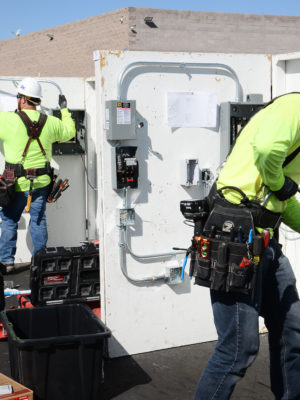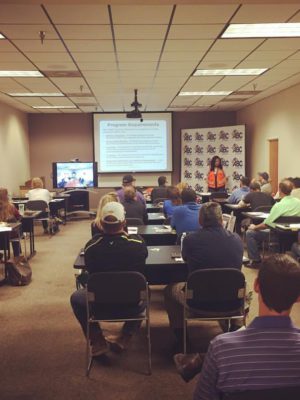
Recertification
Journeymen Electricians must renew their Electrical
Qualifications Card every 3 years and must obtain at least 1.8 CEU’s (18 hours of instruction) during each 3 year period.
These CEU’s must consist of the following:
1. A one-day class or eight-tenths (0.8) CEU’s must be from a code-change class highlighting code changes to the current edition or future enforced edition of the National Electrical Code for the renewal period.
2. A 4-hour class or four-tenths (0.4) CEU’s must be on Electrical Safety based on NFPA70E current edition for the renewal period.
3. The balance of the CEU’s can be from other acceptable providers on electrical code and safety-related topics.
Only CEUs issued by specific organizations on electrical code and safety-related topics will be accepted.



